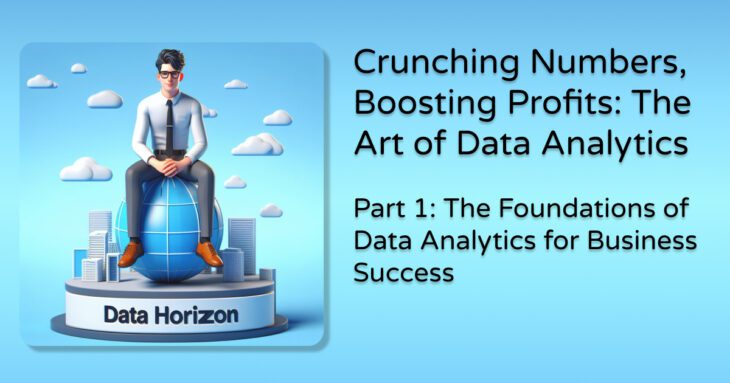Welcome to the first installment of our enlightening series, where we delve into the transformative world of data analytics. In this inaugural article, we will lay the groundwork by exploring the foundations of data analytics and its pivotal role in driving business success. Whether you’re a seasoned professional or new to the realm of data analytics, this comprehensive guide aims to elucidate key concepts, methodologies, and real-world applications that empower organizations to maximize profitability, enhance operational efficiency, and gain a competitive edge.
The Significance of Data Analytics
Driving Business Growth
In today’s digital age, data serves as the lifeblood of organizations, providing invaluable insights into customer behavior, market trends, and competitive landscapes. By leveraging advanced analytics tools, techniques, and methodologies, businesses can transform raw data into actionable insights, enabling informed decision-making, strategic planning, and effective resource allocation. As a result, organizations can optimize operations, mitigate risks, capitalize on opportunities, and drive sustainable growth in an increasingly competitive marketplace.
Key Concepts and Methodologies
Data Collection and Processing
The journey of data analytics begins with the collection and processing of relevant data from disparate sources, including customer interactions, sales transactions, website traffic, social media engagements, and more. By implementing robust data collection mechanisms and leveraging data integration tools, organizations can aggregate, cleanse, and prepare data for analysis, ensuring accuracy, consistency, and reliability in their analytical endeavors.
Data Analysis and Interpretation
Once data is collected and processed, the next phase involves data analysis and interpretation, where organizations utilize statistical algorithms, machine learning models, and data visualization techniques to uncover patterns, trends, and insights. By applying descriptive, diagnostic, predictive, and prescriptive analytics, businesses can gain a comprehensive understanding of their operations, identify areas for improvement, and formulate data-driven strategies that optimize performance and drive profitability.
Real-world Examples
To illustrate the impact of data analytics on business success, let’s explore a few real-world examples showcasing organizations that have leveraged data analytics to enhance operational efficiency, improve customer satisfaction, and boost profitability:
- Retail Industry: Leading retailers utilize data analytics to analyze customer purchasing behavior, optimize inventory management, personalize marketing campaigns, and enhance customer loyalty, thereby driving sales growth and maximizing profitability.
- Healthcare Sector: Healthcare providers leverage data analytics to analyze patient outcomes, optimize resource allocation, improve clinical decision-making, and reduce costs, thereby enhancing healthcare quality, efficiency, and affordability.
- Financial Services: Financial institutions utilize data analytics to analyze market trends, assess credit risk, detect fraudulent activities, and personalize financial products and services, thereby mitigating risks, enhancing compliance, and maximizing shareholder value.
As we conclude this enlightening exploration of the foundations of data analytics, it becomes increasingly evident that embracing data-driven strategies, methodologies, and tools is essential for driving business success in today’s competitive marketplace. By leveraging data analytics to transform raw data into actionable insights, organizations can optimize operations, mitigate risks, capitalize on opportunities, and maximize profitability, thereby gaining a competitive edge and ensuring long-term success.
